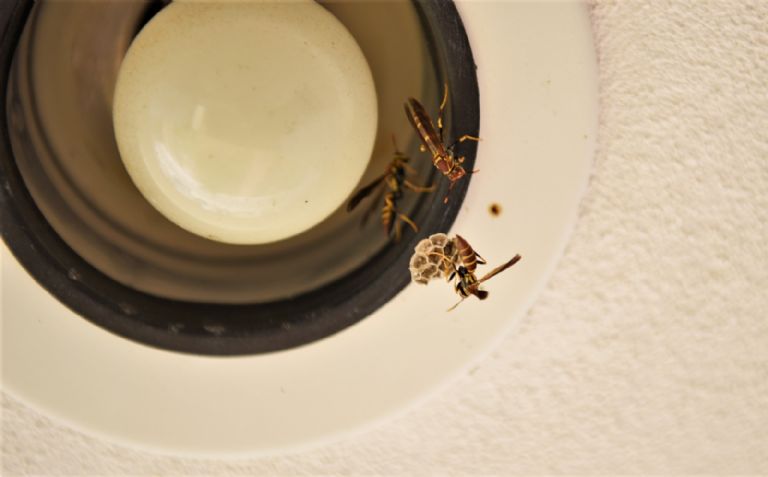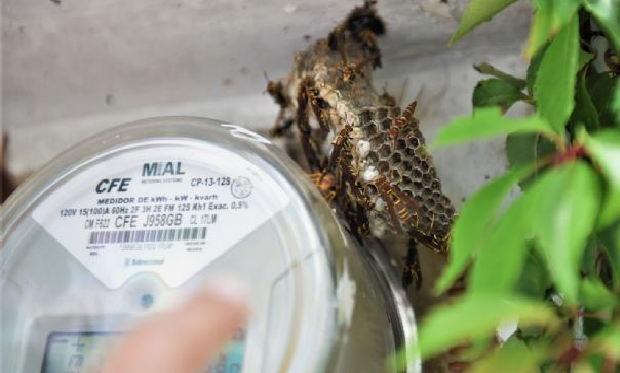Mérida, Yucatán, (August 06, 2021).- A plague of wasps known as “Ni Chaak” or “Red Nose”, frightens residents of the fourth stage of the Los Héroes subdivision, who denounced that a couple of months ago honeycombs began to appear in warehouses, gardens, and green areas of this development.
“We have removed many hives and they return, some bigger, others smaller or they build them faster. Behind my house, we have a vacant lot, so I think many come through that way, ” said a resident of Calle 95 in Los Heroes.
He indicated that, so far, no member of his family has received a bite from these insects, but through the internet, he learned that the sting of this species of wasp is very painful.
“Yesterday we went out to buy water, we realized that there was already another hive in the vine, the one before this one is still next to the light meter, so, the moment we saw it, we brought the girl into the house, because they were starting to get upset, ” he added.

Similarly, María Puerto said that a hive of these wasps was formed in a tree inside her house, which she reported to the Fire Department of the Ministry of Public Security (SSP) of Yucatán, however, they mentioned that it is a species cyclical and that it is not dangerous, so they did not come to remove it.
The woman also considered that, due to the expansion of the subdivision, many green areas are being removed in recent months, which could cause the insects to seek refuge in other places.
“Here three blocks away they are building new houses, so I imagine they must also be desperate because they are cutting down all their trees,” added the resident of Los Héroes.

For her part, the beekeeper Bertha Pool Cat, from the Lol Be Meliponary, located in the town of Chablekal, explained that the Ni Chaak wasp is typical of the region and appears only during the summer, to carry out important environmental tasks.
Although she ruled out a high risk of toxicity, she recognized that the bite of this insect can cause a lot of pain, so she recommended that people do not go near the hives, so that they do not feel threatened.
“Their venom is not so toxic, but it does sting strongly, so you just have to be careful, because in reality, as long as you don’t bother them, they are not aggressive,” Pool Cat said about this species.
Finally, she stressed that each insect has a function within the ecosystem in which it inhabits, which is why she called on people to respect their space and not try to kill them using insecticides since their disappearance could lead to the death of many plants and flowers around the area.
TYT Newsroom


